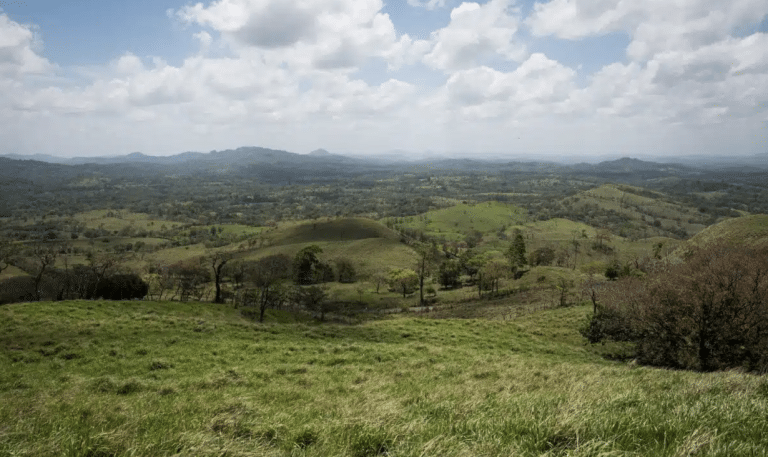8 de diciembre 2024

Children of Exile: The Births “Sowing Hope” in the Camp of Nicaraguan Farmers

PUBLICIDAD 1M
PUBLICIDAD 4D
PUBLICIDAD 5D
Recent constitutional reforms in Nicaragua expand resource exploitation concessions, obscure decision-making, and drop environmental commitments.

The Ortega dictatorship facilitates deforestation in Nicaragua. Photo from archives
The regime in Nicaragua has “opened the doors to exploitation” of the country’s natural resources. The recent lightning-fast reforms to the Constitution will eliminate the State’s obligation to submit contracts for environmental exploitation to “transparent and public processes,” as established in the current Constitution.
Article 102 of the Constitution that has been in force since 1987 establishes that the Government can concede “contracts for the rational exploitation of natural resources” when the national interest requires, but subject to public and transparent proceedings. However, in the proposed total reform of this Constitution, the stipulations that such contracts be granted in situations of “national interest” and “after public process,” will no longer appear.
“The change in Article 102 opens the doors to the exploitation of natural resources without any transparent public process or need to assure that they’re tied to the national interest,” stated environmentalist Amaru Ruiz.
He warned: “This leaves the country’s public assets at the mercy of private interests, with no possibility of public scrutiny. This can deepen the environmental degradation the socio-environmental conflicts.”
Other reforms to the same Article 102 eliminate the provision that, if considering a concession to foreign companies “for the construction and rational exploitation of an inter-oceanic canal,” priority should be given to “the conformation of consortiums with national companies to promote employment.” This last change is occurring parallel to Ortega’s attempts to resurrect the inter-oceanic canal project, now along a new route. He offered such an opportunity to a group of Chinese magnates in November 2024.
In the past few years, the regime has also conceded huge mining concessions which “threaten” the indigenous communities in the Caribbean Coast regions. The concessions granted to Chinese companies have now been extended to new territories such as Esteli, where in August 2024, the Nicaraguan government awarded the “Nicaragua Xinxin Linze Mining Group S.A”. a tract of land extending over some 8,967 acres in the municipality of San Juan de Limay.
The latest mining concession, also to the Chinese XinXin Linze Mining Group, was announced on November 27, involving 22,492 acres in the Department of Nueva Segovia.
The modifications to Article 102 of the Constitution are part of a series of transformations to Nicaragua’s former Magna Carta that the regime of Daniel Ortega and Rosario Murillo have ordered. The changes, supposedly to “modernize” the document, actually affect up to 93% of the articles, most of them aimed at concentrating still further power and repression.
This new draft, popularly called the Chamuca Constitution, in reference to a nickname given the all-powerful first lady and “copresident” Rosario Murillo, was already approved with lightning speed and minimal discussion in a first legislative session of Nicaragua’s docile National Assembly. In January 2025, it will almost certainly be approved in a second mandatory session, after which it will enter into effect.
Another of the articles that have been “condensed” in the new version is Article #60. The new version leaves out the duty to “protect and restore the integrity of the ecosystems, with special concern for biological diversity and all the natural processes that sustain life.”
Similarly, it eliminates the parameter: “patterns of production and consumption should be adopted that guarantee the vitality and integrity of mother earth, social equity for humanity, responsible and fair consumerism, and community well-being.”
These changes “dismantle the government’s commitments to environmental protection and sustainability,” believes Ruiz, former president of the now-shuttered and confiscated environmental NGO Fundacion del Rio.”
The environmentalist added: “by eliminating the recognition of Mother Earth as a self-regulating system, and the obligation to protect ecosystems and biodiversity, they betray the Constitutional mandate to guarantee sustainable development.”
The Ortega regime, he stressed, has allowed “an environmental disaster, with grave consequences for global climate.
An investigation conducted by the Organized Crime and Corruption Reporting Project and published in a report titled “Deforestation, Nicaragua’s other forgotten crisis,” revealed that deforestation spiked beginning in 2014, when Ortega assumed direct control of the National Forestry Institute (Inafor). The average loss of forestland in Nicaragua went from 1.34% between 2010 and 2015, to 2.56% from 2015-2020.
This environmental disaster has been fed by the corruption in Inafor, made possible by the presidential family, demonstrated in a leak of internal documents analyzed by the Organized Crime and Corruption Reporting Project.
The regime has also eliminated all independent environmental NGOs in Nicaragua. “Those national and international organizations that are still operating have been coopted by the regime, such as Flora y Fauna Internacional,” Ruiz declared.
This article was published in Spanish in Confidencial and translated by Havana Times. To get the most relevant news from our English coverage delivered straight to your inbox, subscribe to The Dispatch.
PUBLICIDAD 3M
Confidencial es un diario digital nicaragüense, de formato multimedia, fundado por Carlos F. Chamorro en junio de 1996. Inició como un semanario impreso y hoy es un medio de referencia regional con información, análisis, entrevistas, perfiles, reportajes e investigaciones sobre Nicaragua, informando desde el exilio por la persecución política de la dictadura de Daniel Ortega y Rosario Murillo.
PUBLICIDAD 3D